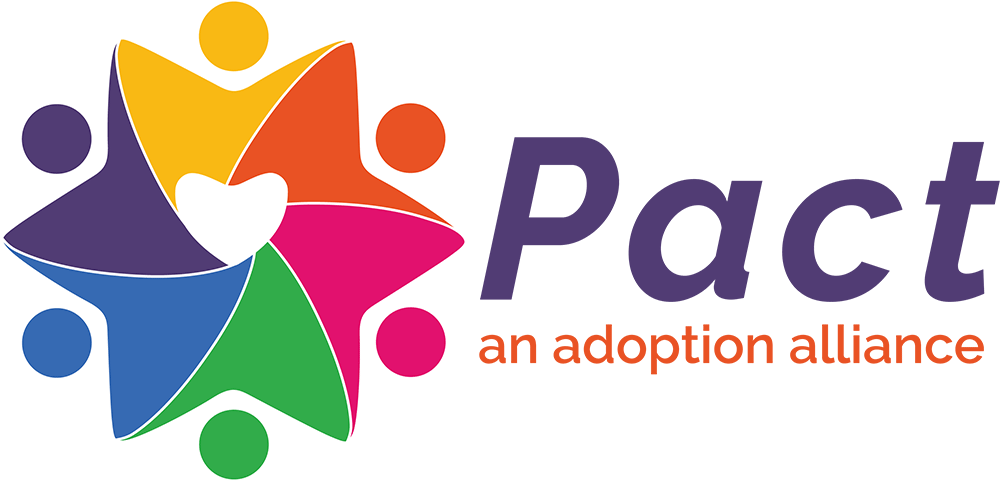by Parker Dockray and Susan Dusza Guerra Leksander
2017
Mother’s Day can bring fraught feelings for many of us. This is particularly true for mothers touched by adoption, whether as first/birth mothers or as adoptive mothers, because for both groups there remains societal judgment about whether or not they are “real” mothers. Yet while our focus is often on those whose adoption arrangements have been finalized, it is in the moments leading up to placement that some of the biggest moral and ethical questions in adoption are revealed.
For many years, the demand for newborn babies to adopt has outpaced the supply; there are significantly fewer infants available for adoption than there are families who wish to adopt. Adoption providers across the country are struggling to stay afloat, and in January of this year, the largest nonprofit agency in the country unexpectedly declared bankruptcy. As in any field dependent on service revenue, many of the challenges faced by adoption agencies boil down to simple economics and a problem of supply and demand. But because this demand is for human infants, inextricably tied to people experiencing unplanned pregnancy and the choices they must make, it raises difficult questions about what ethical adoption practice should look like.
Too often, pre-adoptive parent support groups and forums articulate the infant scarcity “problem” as a failure of adoption providers to “find birth mothers.” They compare notes about which agency has the better outreach plan to pregnant women, or the more aggressive advertising campaign, or the highest success rates (success being defined as number of completed placements). This framing speaks to a knowledge gap about the ethics of adoption, a gap that adoption professionals should be working to fill.
Because, if adoption exists to meet a societal need, why would such a wide-scale marketing campaign be necessary?
The truth is that the decline in adoption placements reflects positive shifts for low-income women and their families. In addition to increased access to contraceptives and abortion care, the de-stigmatization of single parenting has contributed to a decreased number of newborns available for adoption. These advances should be celebrated – even if, as a result, it takes longer for those hoping to adopt to fulfill their desire to become parents, or makes it harder for adoption agencies to remain in business. But many adoption professionals fail to set this tone with prospective adopters, or to temper their expectations. Rather, adoption is marketed to waiting families as a way to find a baby, often at great expense and with the promise of speedy results.
Any provider committed to compassionate, non-coercive pregnancy counseling must operate without agenda, and without the pressure of quotas or incentives. Who protects the interests of the pregnant women and parents in crisis who are targeted by birth mother recruitment efforts? How can adoption professionals ethically reach out to people who are looking for solutions to an unplanned pregnancy, and who is holding these providers accountable?
While there is no short, easy path to the implementation of professional standards for adoption providers, pre-adoptive parents themselves can be important agents of accountability. If you are considering adoption, you can improve your chances of working with an ethical agency by asking: Do the strategies a provider uses for “birthmother outreach” seem aggressive or high-pressure? Are expectant mothers being given ample opportunities and resources to fully explore all their options, including abortion and/or parenting? Would you be comfortable if your sister or friend was the target of these tactics at a vulnerable time in her life? Will you be able to tell your adopted child that the woman who gave birth to them was treated kindly and fairly? In short, to what lengths are you willing to go in order to adopt an infant?
This last question is often a hard one for pre-adoptive parents to answer, while they are in the throes of intense desire for a child. That’s why, ultimately, accountability must reside with adoption professionals and the states that license them.
Advocating for ethical adoption practices is not denying the deep bonds of love that form in adoptive families; it is simply arguing that every adopted child deserves to grow up secure in the knowledge that their first mother, when faced with an unplanned pregnancy, was able to weigh all her options and decide on the best course for her and her child without being subject to overt or subtle pressure, trickery, or coercion from people with vested interests.
Adoption should be a child-centered practice—finding a family for children in need, not procuring infants for people who want to be parents. Of course, sometimes both occur in a way that is mutually beneficial. But when the system is reliant on money from those who want to adopt, the pressure to act in their interests becomes paramount. We must institute an adoption service model that does not commodify children or pregnant women. We must support women in accessing their own strengths, resources, and parenting potential, so that if they ultimately choose adoption, it was not from a place of self-doubt and inadequacy. Until then, adoption will remain mired at the very muddy intersections of money, people desperately hoping to become parents, pregnant women in crisis, and competition for powerless, vulnerable infants.
Parker Dockray, MSW, is a longtime advocate for reproductive health and justice and the Executive Director of All-Options, a non-profit organization that promotes unconditional, judgment-free support for people in all of their decisions, feelings, and experiences with pregnancy, parenting, abortion, and adoption. Susan Dusza Guerra Leksander, LMFT, is a first/birth mother and an adoptee, and the Agency & Clinical Director and First/Birth Family Advocate at Pact, An Adoption Alliance.
